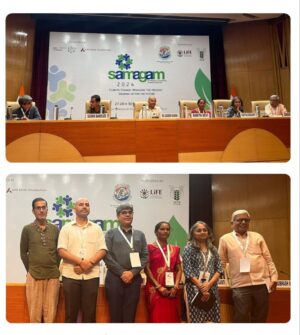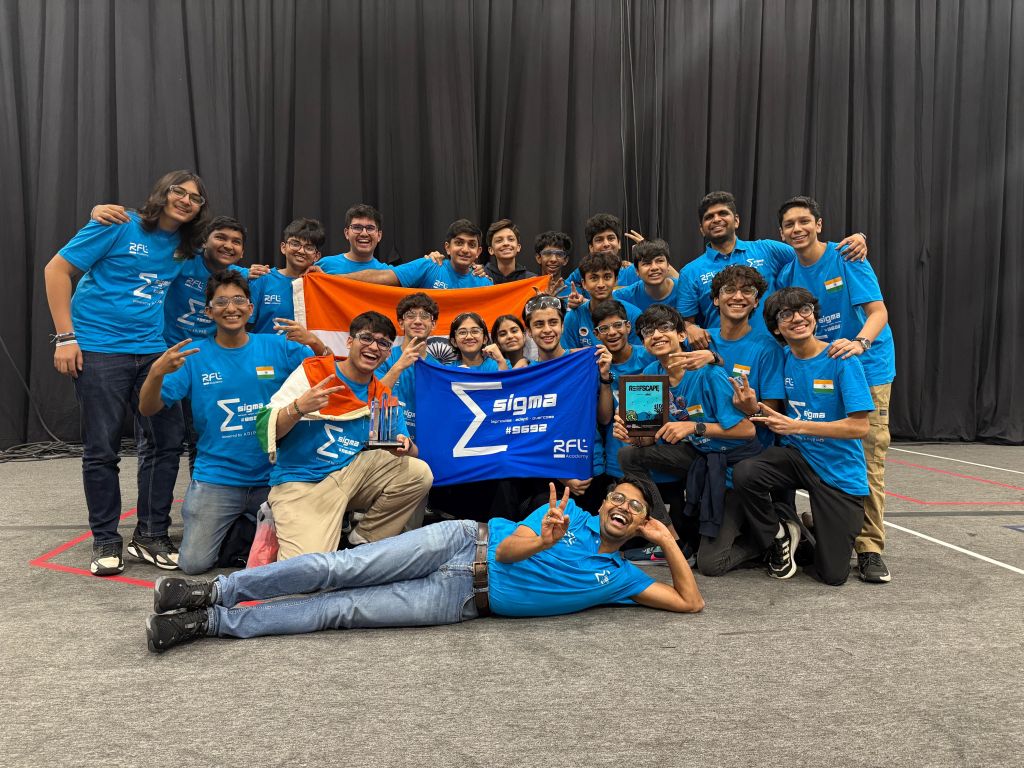● Discussions around key issues impacting climate change and livelihood
● Nearly US$ 7 million of crop loss can happen by 2030, if the same climatic patterns continue to exist
● Rainfall patterns are erratic with places like Rajasthan and Gujarat facing almost 30% increase in rainfall
Issues related to climate change need to be addressed at a lightning speed, which is a key takeaway at Samagam, 2024. PRADAN (Professional Assistance for Development Action), in association with Axis Bank Foundation, recently organised Samagam 2024- one of India’s leading social conclaves, centred around addressing the critical issues related to climate change in India. India is at the tipping point of changing climatic conditions, which is leading to unexpected rainfall across the country, increase in temperature, floods. India is now considered the third largest emitter of carbon dioxide, after the US and China.
Some key excerpts from the conclave have been around water scarcity, cyclones, landslides, heavy rainfalls and disruptions to agriculture, which have been significantly observed in India. Cyclones which have been known to impact the Eastern coast of India for years, is now increasingly impacting the Western coast of the country. If the intensity of cyclones persists, cyclones in West would match the strength of those in the East, in the next decade. Late onset and late withdrawals of monsoon is also being observed, which is disrupting the country’s ecological balance. Places like Rajasthan and Gujarat have faced almost 30% increase in rainfall in the last few years.
Mr. Saroj Kumar Mahapatra, Executive Director of PRADAN, said, “Community stewardship is crucial in driving sustainable change. Through processes like GPDP (Gram panchayat development plan) around 100 million women, self-help groups (SHGs), and village organizations have already been mobilized, through flagship programs like DAY-NRLM, however, one thing is clear- shifting the mindset of people is vital. It is important to harness collective efforts effectively and build a coalition, which is essential for strengthening the entire ecosystem. Decentralized community actions, in collaboration with Panchayats in many places is looking promising and many CSOs are already doing exceptional work there. Thus, multi-stakeholder partnerships are vital in improving climatic conditions and uplifting rural livelihood. If we focus on short-term outcomes at the community level, while aiming for long-term systemic changes, we can create impactful and sustainable solutions.”
“Along with these another critical aspect for long term success is evidence-based learning and documentation. By capturing and sharing data-driven insights, CSOs can operate more effectively, find out the exact pain point areas and accordingly drive real climatic change on the ground,” he further added.
India is facing complex climatic challenges, where around 70 million acres of crop has been impacted due to climate change in the last seven years, and nearly US$ 7 million of crop loss can happen by 2030, if the same climatic patterns continue to exist. In the category of agricultural land, around 55 million hectares of land come under uncultivated, and a vast population living on these lands for their sustenance are impacted by food insecurity and livelihood loss. In the vast stretches of Eastern and Central India, degraded uplands constitute total 40% of average smallholder household’s landholding. And farming has to be done in the thin strips of valley lands, as a result, food insecurity and low-income triggers distress migration. Along with climate change, land degradation is also a critical issue impacting livelihood and GDP of the country.
Dhruvi Shah, Executive Trustee and CEO of Axis Bank Foundation said, “Climate change resultant challenges are complex. It often calls for fundamental reforms at grassroots. Grassroots centric actions can pave the path for sustainable changes. In Rural India, immediate priority is to secure seasonal incomes. And long-term engagement to improve the resilience of the landscape to ensure continuity of the eco system services. It is extremely vital for people, Civil society organizations (CSOs), government and private sector to meaningfully dialogue and work together.”
With multiple issues and their impact on climate, Samagam 2024 focused on Climate Change- Managing the Present, Gearing Up for the Future. It was supported by Ministry of Environment, Forest and Climate change, Mission Life and Indian Council of Agricultural Research (ICAR). It encouraged dialogues and collaborations between multiple stakeholders to collaboratively implement solutions, which can improve the climatic conditions in the years to come.





